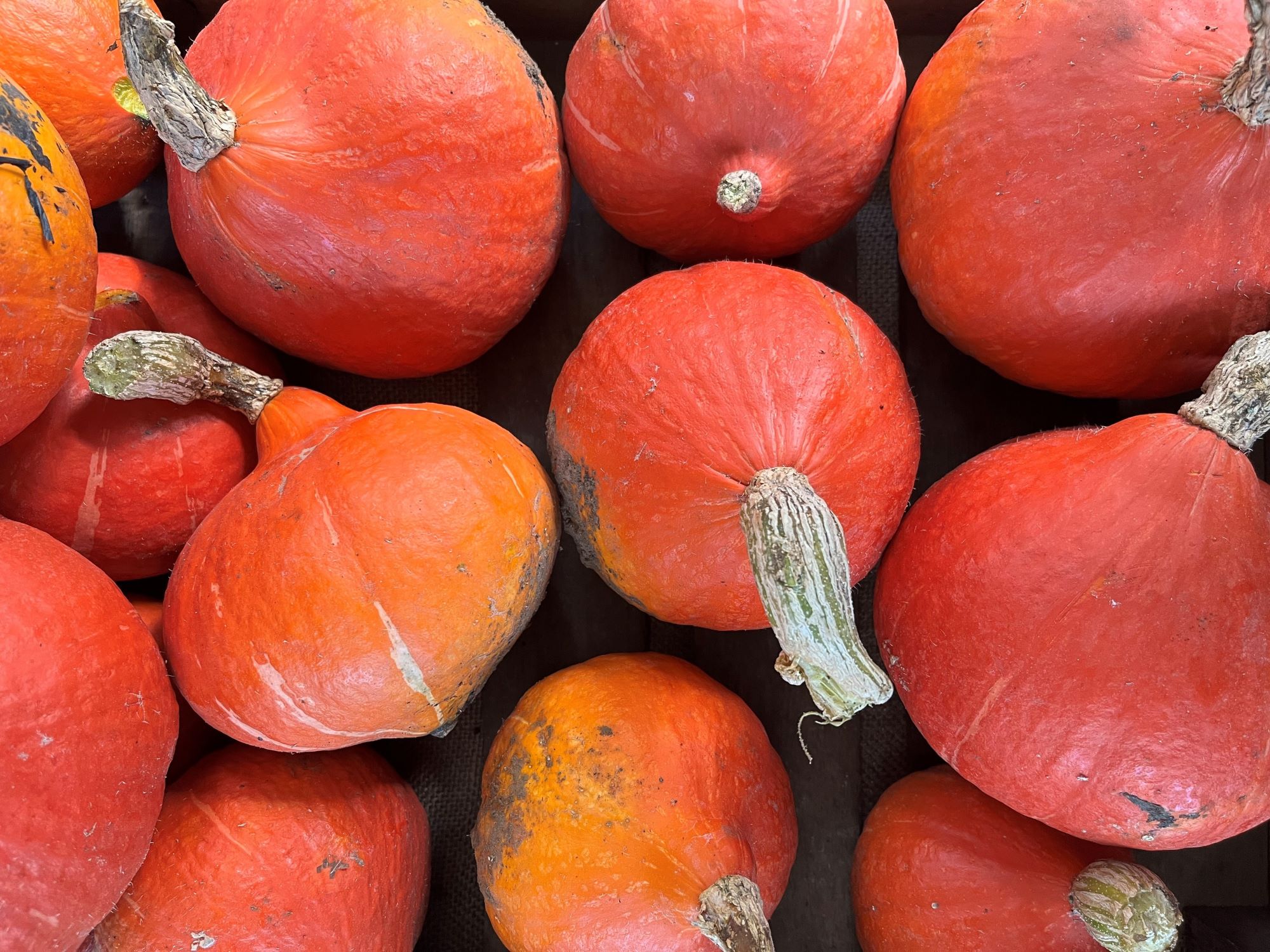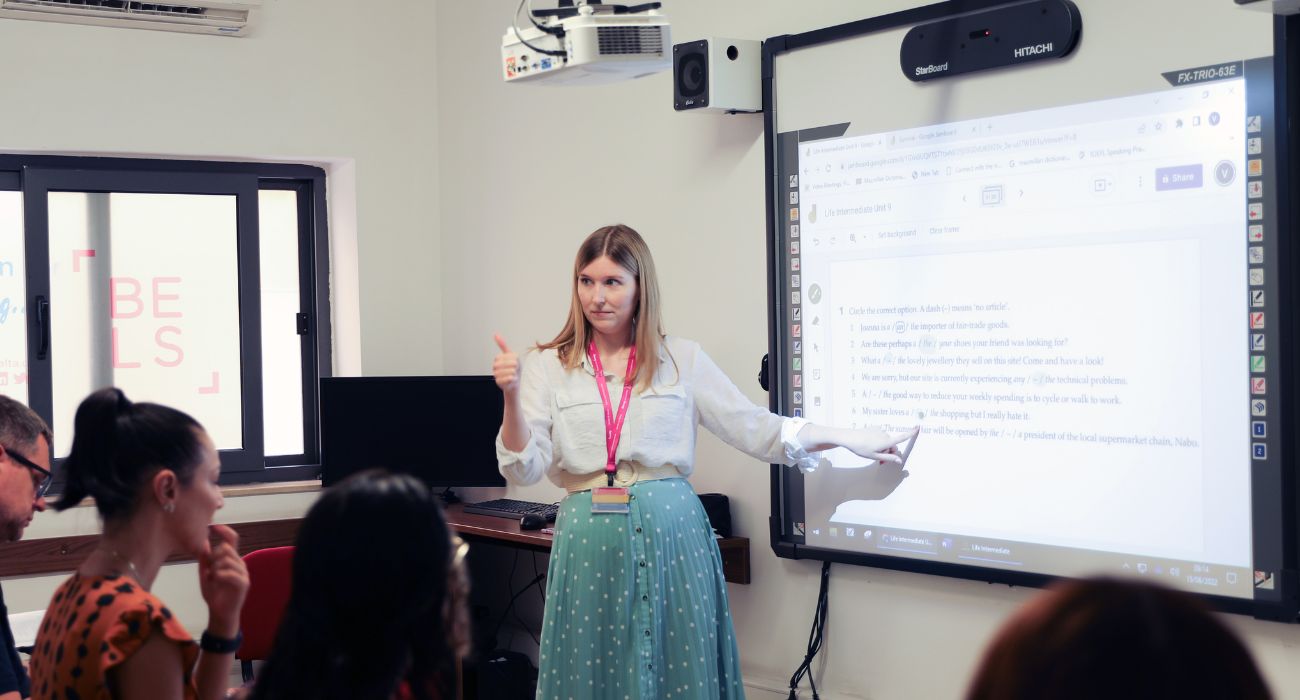Autumn Phrases in the English, Language and Culture
Autumn is a beautiful season when the leaves turn orange and red, the weather gets colder, and you might feel a bit moodier. There are plenty ofWhen learning new phrases and idioms in English, it’s important to understand the context behind them, as language and culture go hand in hand. So, let’s explore the fascinating autumn culture of the United States and the United Kingdom together.

Autumn Culture and Language
Autumn is a time of year when activities at home become more popular, like carving pumpkins, watching scary movies, or hosting Halloween parties. Speaking of Halloween, did you know that people used to believe leaving out carved pumpkins – specifically ones with scary faces – would ward off evil spirits? Visit our Halloween blog to all about Halloween and movies in English.
There are many other festivities associated with Autumn or fall as it’s known in America. In the United States and Canada, Thanksgiving takes place in Autumn. It’s a holiday that celebrates a good harvest and blessings over the past year. A typical Thanksgiving dinner consists of a turkey with stuffing, vegetables (usually potatoes and beans), cranberries, and gravy. For dessert, there’s almost always pumpkin pie. Thanksgiving Day is celebrated on the last Thursday of November, as proclaimed by Abraham Lincoln in 1863 when people give thanks for a good year.
Autumn Vocabulary in English
Below is a list of autumnal vocabulary divided by type. Knowing whether a word is a noun, adjective, or phrasal verb immediately gives you an indication of how it can be incorporated into your day-to-day language. There are also graphics and photos at the end of the blog with all the vocabulary items.
Nouns
Learn all about nouns, how to use them and when in this grammar guide about nouns.
- Pumpkin – an orange vegetable.
- Harvest – a collection of products from fields/trees etc.
- Acorn – the fruit of the oak tree.
- Scarecrow – a puppet used in a field to scare off birds
- Raincoat – a jacket that is used to keep yourself from getting wet in the rain
- Rake – a tool to collect leaves from the ground and put them in a pile
- Pie – a baked dish of fruit, or meat and vegetables, typically with a top and base of pastry.
- Chestnut – a large, brown nut that grows on a sweet chestnut tree, often cooked and eaten hot.
Adjectives
Learn all about adjectives, how to use them and when in this grammar guide about adjectives.
- Foggy – No clear sky. A foggy day is when there is a large amount of fog in the air and you cannot see clearly. Fog is a thick cloud of tiny water droplets suspended in the atmosphere, that can look like smoke.
- Ex. It was so foggy in the morning that you couldn’t see 3 meters in front of you.
- Gusty – gust refers to a sudden and strong rush of wind. So gusty weather is when there are a lot of gusts, which is common in Autumn/fall.
- Ex. There were a lot of gusty winds outside and there was sunshine.
- Spooky – When the atmosphere or feeling in a place is sinister or ghostly and causes fear and unease. It’s often used to describe old abandoned houses which can have ghosts and Halloween
- Ex. The movie was spooky, don’t you think?
- Brisk – Something cold but fresh. It describes the type of weather and temperature which is typical of Autumn/Fall.
- Ex. There was a brisk wind today. It was quite refreshing.
- Crunchy – Something crunchy is brittle and makes a distinct, crisp sound. It can be used for food, or for dried leaves.
- Ex. I love walking through parks in Autumn and hearing the sound of the crunching leaves.
- Cosy – When something is cosy, it’s comfortable and pleasant, especially (of a building) because of being small and warm.
- Ex. The best feeling at the end of a wintry day is sitting with a cup of tea in front of the fire, in a cosy room.
- Rainy – Describes weather that is marked by considerable rainfall.
- Ex. They walked along the promenade on a rainy night.
- Golden – Coloured or shining like gold.
- Ex. She combed and arranged her golden hair.
Phrasal Verbs
Learn all about phrasal verbs, how to use them and when in this guide about phrasal verbs.
- to dress up – to put on a costume.
- Ex. Lola dressed up as a clown for Halloween – isn’t she funny?
- to carve something – when you use a knife to make a shape or inscription into something. In Autumn, people use a knife to cut a face into a pumpkin
- Ex. My mum and I carved pumpkins yesterday. They came out great!
- to gather – to collect items into a pile.
- Ex. Every evening we gather all the fallen leaves in a pile.
- to go trick-or-treating – knocking on doors and asking for sweets on Halloween.
- Ex. When I was a child my sister and I went trick-or-treating in our neighborhood.
- to bake something – to combine ingredients to make something in the oven, e.g. cookies.
- Ex. My grandma bakes the best cookies in the world – trust me!
Autumn Idioms in English
There is something unique about idioms – they only sound good in their respective language. For example, the German “Das ist nicht das Gelbe vom Ei” literally translates to “this is not the yellow of the egg”, meaning it’s not the yolk – the best part – of the egg. Doesn’t make sense in English, right?
With summer coming to an end and autumn starting, here are 8 autumn-themed phrases you can use to make this rainy season a bit lighter.
1. To be nuts about someone or something
Have you ever met a person and can’t stop talking or thinking about them? Then you might hear this sentence: “My God, you are really nuts about this person, huh?”. To be nuts about someone, or something, means that you are really interested in them/it, making it almost an obsession.
2. To drive someone nuts
Another nut-themed idiom is “to drive someone nuts” Here however it is not positive. It means that you get on someone’s nerves so much that they are annoyed at you. When the first fight with that special someone that you were nuts about comes up, they might use this: “You drive me nuts”.
3. To squirrel away
Do you know who likes nuts? That’s right – squirrels. The meaning of the saying “to squirrel away” is more obvious than you would think. Just like squirrels hide nuts for the winter, “to squirrel away” means that you save something in order to use it in the future. That trip you have been saving up for? You have been squirreling away a little money here and there to finally see the Eiffel Tower, the Great Wall of China or your grandma’s smile on the other side of the country.
4. To save for a rainy day
“To save for a rainy day” also means saving something but in the sense of saving for worse days. For example: Your car breaks down and you must take it to the garage to get it fixed. You might say to yourself: “Thank God, I saved that money on the side. I was saving it for a rainy day – guess this one’s it!”
5. To feel under the weather
Speaking of rain, we all have days, when we don’t feel 100% good and think that we might become ill in the next few days. Those are the days you can tell people that you “feel under the weather” when they ask you how you are.
6. To shake like a leaf
What is the scariest horror movie you can think of? Remember when you were watching it? Chances are that you were “shaking like leaf”. This means, that you were so scared that you were shaking. It can also mean that you were feeling cold, for example: I was in Iceland last week. It was so cold – I was shaking like a leaf”.
7. Turn over a new leaf
When you have had a period of bad experiences or hard times, you are just looking forward to the next chapter of your life, when everything gets better, right? When you do that – start a new chapter – you turn over a leaf. You accept the past and look into the future with hope.
“Maria has had a lot of bad things happening to her in the last few weeks. I’m glad she is turning over a new leaf. I hope she is luckier from now on”
It can also mean that you start acting in a more responsible, better way.
“Amira always does her homework last minute. I hope she turns over a new leaf and starts doing them earlier.”
8. The apple doesn’t fall (too) far from the tree
“You are just like your mother/father” is a sentence a lot of us heard before. “The apple doesn’t fall (too) far from the tree” is another way of saying that. Like the apple is a product of its tree, we are products of our parents. We adapt behaviours and looks from them and might be referred to as a “mini-me” of our mum or dad.
What’s Autumn like in Malta and Gozo?
Autumn in Malta is a short but lovely season that offers a perfect opportunity to explore the island’s attractions. Unlike other Mediterranean countries, the weather is not too hot or too cold, making it ideal for outdoor activities such as nature hikes or strolls. Moreover, it’s a low season in the travel industry, which means you can enjoy a sunny holiday without paying the high summer prices. With fewer tourists, you can also experience the authentic Maltese and Gozitan lifestyles.
Take a trip to Malta this autumn and enjoy the warm sunshine, fresh produce, and verdant landscapes. Don’t forget to pack your swimsuit as locals still swim until late November.
And if you want to make the most of your autumn study trip, consider taking English courses with us at BELS, a renowned English language school in Malta and Gozo. Contact us at [email protected] to begin planning your trip and enrollment.





